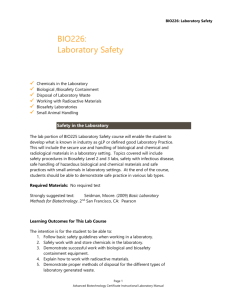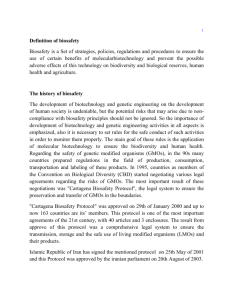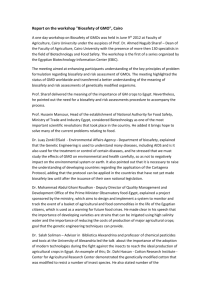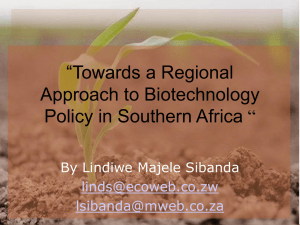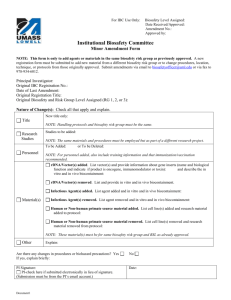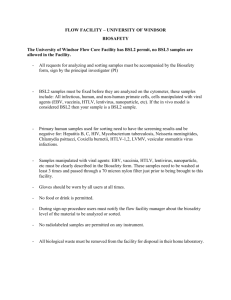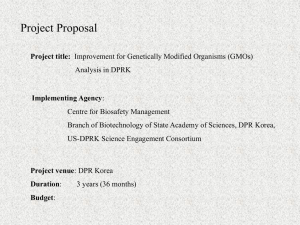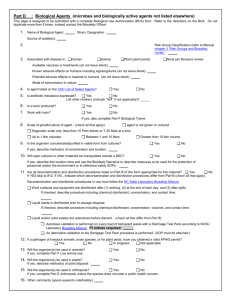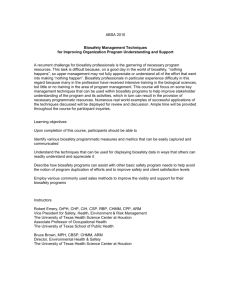GMASSURE BIOSAFETY CAPACITY BUILDING INITIATIVE IN
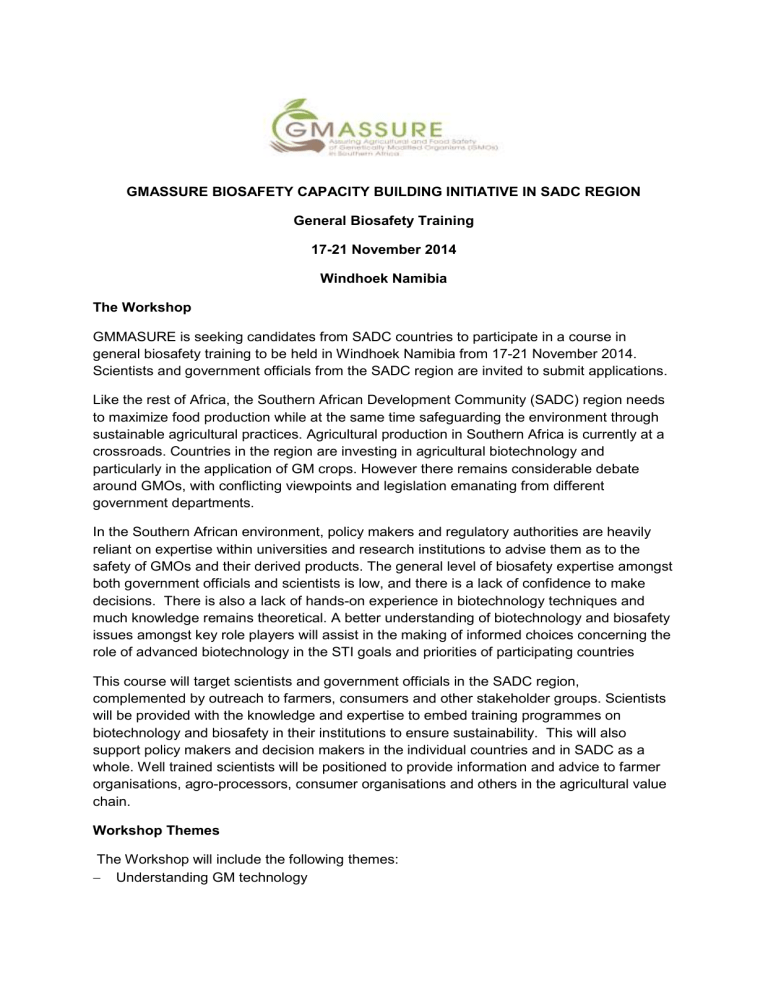
GMASSURE BIOSAFETY CAPACITY BUILDING INITIATIVE IN SADC REGION
General Biosafety Training
17-21 November 2014
Windhoek Namibia
The Workshop
GMMASURE is seeking candidates from SADC countries to participate in a course in general biosafety training to be held in Windhoek Namibia from 17-21 November 2014.
Scientists and government officials from the SADC region are invited to submit applications.
Like the rest of Africa, the Southern African Development Community (SADC) region needs to maximize food production while at the same time safeguarding the environment through sustainable agricultural practices. Agricultural production in Southern Africa is currently at a crossroads. Countries in the region are investing in agricultural biotechnology and particularly in the application of GM crops. However there remains considerable debate around GMOs, with conflicting viewpoints and legislation emanating from different government departments.
In the Southern African environment, policy makers and regulatory authorities are heavily reliant on expertise within universities and research institutions to advise them as to the safety of GMOs and their derived products. The general level of biosafety expertise amongst both government officials and scientists is low, and there is a lack of confidence to make decisions. There is also a lack of hands-on experience in biotechnology techniques and much knowledge remains theoretical. A better understanding of biotechnology and biosafety issues amongst key role players will assist in the making of informed choices concerning the role of advanced biotechnology in the STI goals and priorities of participating countries
This course will target scientists and government officials in the SADC region, complemented by outreach to farmers, consumers and other stakeholder groups. Scientists will be provided with the knowledge and expertise to embed training programmes on biotechnology and biosafety in their institutions to ensure sustainability. This will also support policy makers and decision makers in the individual countries and in SADC as a whole. Well trained scientists will be positioned to provide information and advice to farmer organisations, agro-processors, consumer organisations and others in the agricultural value chain.
Workshop Themes
The Workshop will include the following themes:
Understanding GM technology
International policy approaches (US vs. EU vs. Africa, Precautionary Principle,
Cartagena protocol),
Approaches to embedding biosafety policy in a regulatory framework
Risk assessment and risk management, balancing risks with benefits
Socio-economic considerations; science, technology and society
The role of culture and religion
Biotech science communication to societal stakeholders
Implications for agriculture, the environment, food security and trade
Experiences with GMOs to date in South Africa and elsewhere
Course Participants
Scientists and government officials from SADC countries will be selected for biosafety training based on:
existing or anticipated engagement in biosafety activities,
need for additional training
ability to disseminate the information further (e.g. through student training, farmer organizations),
gender (women given priority).
The aim is to target primarily those individuals who are less familiar with biosafety concepts rather than those who have previously attended training courses run by other donor organizations. Ideally at least one participant will be selected from each of the SADC countries; depending on the strength of the applications received, some countries will be entitled to send two participants.
The Course
The course will provide biosafety risk analysis training to key stakeholders with the specific objective of highlighting the importance of GMO biosafety for agriculture and food security will cover;
scientific aspects (environmental safety, biosafety clearing house, health and food safety);
societal aspects (socio-economic considerations including food security, food aid, food accessibility, food sovereignty, and trade);
institutional arrangements (legal, regulations and policies);
tuning and tailoring of biotechnology regulation to the African context.
SELECTION AND APPLICATION PROCESS
Travel and accommodation will be provided for selected candidates
The deadline for submitting applications is 25 September 2014
The completed application should be sent via email to info@gmassure.org
An expert panel will be set up by GMASSURE to review the applications received
Successful candidate will be informed before the end of October 2014
